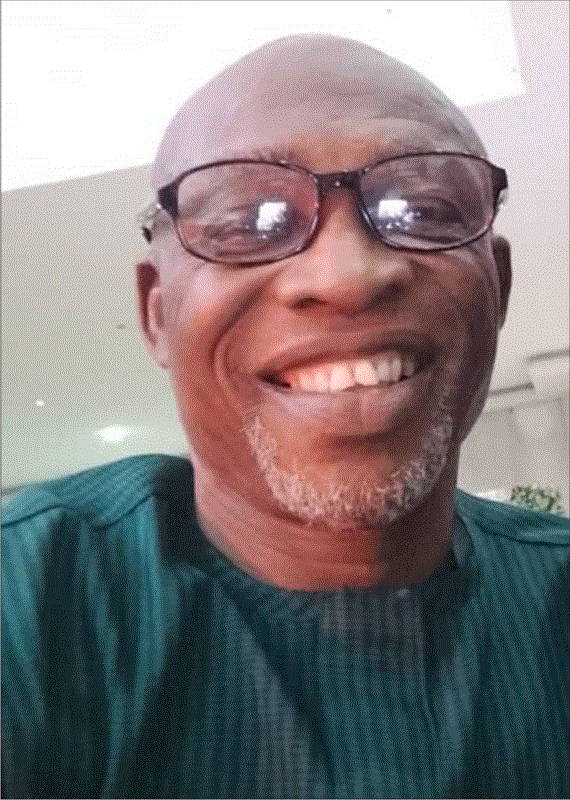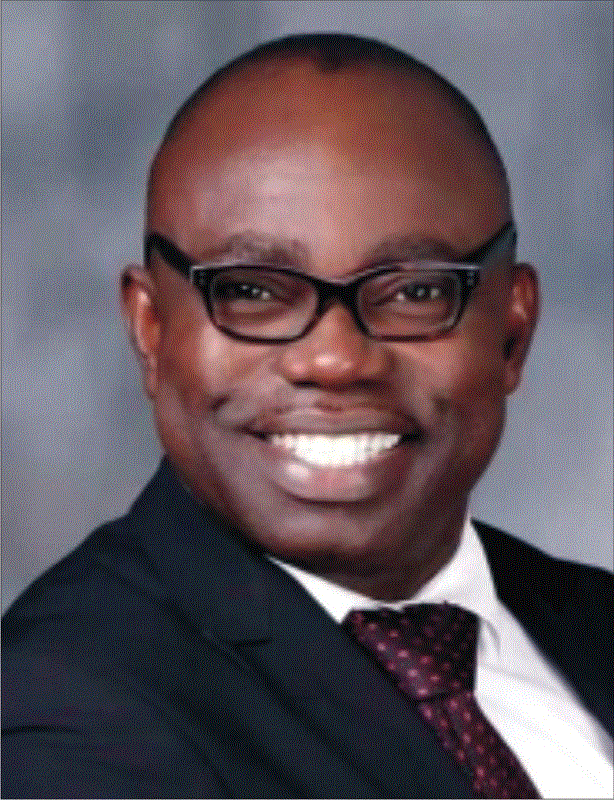Have The Dreams Of Our Heroes Past Been In Vain?
By Dakuku Peterside
Nigeria’s National Anthem has this interesting line: “The labours of our heroes past shall never be in vain”. As much as this is a strident call to patriotism, it probably reveals the concerns of those who wrote the National Anthem that Nigeria’s strenuous journey from independence to nationhood may turn out to be truncated , thereby making a mess of the enormous efforts of our founding fathers.
If the likes of Chief Harold Dappa Biriye, Ernest Ikoli ,Dr. Nnamdi Azikiwe, Chief Obafemi Awolowo and Sir Ahmadu Bello are to converge someplace in the afterlife and review the current state of events in Nigeria, would they be proud of their efforts in making Nigeria’s nationhood a reality? Would they be proud of the current state of the country? Would they walk proudly before the likes of Kwame Nkrumah, Nelson Mandela, George Washington and Mao Zedong, after seeing what the country they strived to build has become?
The founding fathers of modern Nigeria are not entirely blameless for the various problems that are currently bedevilling the country. By the way, most of them were still alive when the rot set in. Some of them were even victims, participants or enablers of the country’s tenuous and tumultuous journey to where we are today, a country with so much promise but too many missteps and regrets. Part of the blame of the founding fathers is that they waged the struggle for independence from the platforms of regional parties, not a common national platform. Consequently, the date of independence was delayed to allow the regional groupings strike a workable accord which was not achieved.
Sir Ahmadu Bello was consumed by the first coup d’état in the country. Chief Obafemi Awolowo was a major player in the Western Regional Crisis of 1965, an event believed by many to be the progenitor of the January 1966 putsch and as Nigeria’s Finance Minister, he was also an active participant during the Nigerian Civil War even though he was not an active combatant. For Dr. Nnamdi Azikiwe, his name loomed large on all major political events in the country until his demise in 1996. It is instructive that this foremost nationalist reverently referred to as The Great Zik of Africa was mostly addressed as Owelle of Onitsha in the later stages of his life. There is no shame in being addressed by a title bestowed on you by your local community but did this reflect Zik’s disillusionment with the African cum Nigerian project?
It needs to be stated that our 60-year journey since independence has not been without some successes. In spite of her imperfections, Nigeria is still a democratic country. We have had our fair share of coups and counter coups and the country spent much of the first four decades after independence under military rule. The jury is still out on whether Nigeria is still a democracy with all the abuses we have seen committed under the guise of the rule of law. But as has been seen the world over, representative government fares much better than dictatorships.
Most importantly, the current 21 years stretch of uninterrupted democratic rule in Nigeria is the longest the country has ever had and in spite of the inherent challenges and hardships being experienced by the Nigerian , people are not calling for the military to take over. It does appear that democracy has come to stay in Nigeria.
The country has also fared well in the area of arts and sports. Our movie industry, aptly named Nollywood, is considered the biggest movie industry in terms of output in the African continent and indisputably the third biggest in the world only behind United States’ Hollywood and India’s Bollywood. The Nigerian music industry currently sets the pace in Africa. Local musicians such as Burna Boy, Davido, Flavor N’abania, Phyno, Tuface Idibia, Whizkid and Naira Marley, are all household names in the African continent. The most popular songs in Nigeria these days are the ones of our local musicians.
We have also produced some of the brightest minds in literature. Wole Soyinka is a Nobel Laureate and Chinua Achebe’s ‘Things Fall Apart’ is one of the most famous books ever written. In sports, the Super Eagles is very popular and Nigerian football players are very famous the world over. We rank high in number of individuals that have accomplished professionally around the world.
The country has also made giant strides in the area of foreign policy. The country is influential in both the Africa Union and ECOWAS, where her peace keeping missions in other troubled countries of Africa have been widely applauded. Within the United Nations, the country has played pivotal role in international affairs especially in dismantling the apartheid regime in South Africa.
In addition to these, Nigeria has remained one in spite of hundreds of ethnic groups that make up the country and a 30-month civil war of secession that nearly tore it apart, which ended in 1970. It is on record that Nigeria was listed by some experts in the United States to break up by 2015. However, the country has continued to remain a single country up till this day.
However, it is unarguable that Nigeria has had more failures than successes as a country. On indices of important nations , Nigeria continues to perform abysmally – GDP, living standards, crime , poverty amongst others . The country has been a victim of anti-development syndromes such as ineffective and visionless leadership, rampant corruption, political crises, and the latest is cyclic security challenges. Although the country is politically independent it has not been free to galvanize her resources in the interest of the citizens to achieve the desired level of development and economic independence.
The country has been designated as the poverty capital of the world. So many Nigerians live below the poverty line in spite of the fact that the country is the highest producer of crude oil in the Africa and despite the abundant wealth that exists all over the country. Part of Nigeria’s economic problems lies in her undiversified economy and uneven distribution of wealth. The country’s export earnings is still hinged on crude oil so the economy is affected by the rise and fall of crude oil prices in the international market and restiveness in the Niger Delta region, where most of the oil is produced. Other natural resources that the country has either remain untapped or underutilized. Most of the country’s agricultural potentials are unexploited and the country still suffers from food insufficiency and insecurity.
Corruption is the major catalyst of poverty in the country as few persons corner the collective patrimony of all Nigerians. Nigeria’s poverty is reflected in many areas – our dilapidated healthcare system, lack of access to clean water, infant and maternal mortality, decrepit infrastructure, poor standard of education and low life expectancy amongst others.
The Nigerian system is infested with a culture of corruption that a former prime minister of Britain posited that we are “fantastically corrupt”. This is a grave problem that has virtually crippled the development of the country. Political corruption and nepotism is so rampant and entrenched in our political psyche that corrupt officials are celebrated and venerated all over the country. There is corruption everywhere – in offices, in schools, in markets and even in churches and mosques. There have been valiant attempts to tackle this hydra-headed monster by the establishment of anti corruption institutions such as EFCC, Code of Conduct Tribunal and the ICPC but corruption in Nigeria seems unrelenting. There is a widely-accepted street saying that Nigerians who are waiting by the sideline to get into government and steal public funds are more in number than those who are currently stealing in government. This should concern all well-meaning Nigerians.
Our education sector is in shambles. Although the country has come a long way in trying to develop its academic strength, the quality of education in Nigeria’s institutions of higher learning is low when compared with those of other countries like South Africa, Egypt or even Ghana. Academic studies are viciously interrupted by incessant strikes by lecturers and non-academic staff. A lot of facilities in our institutions are decrepit or abandoned due to lack of adequate funding and corruption. Wealthy Nigerians send their children to schools in neighbouring African countries and developed countries due to the poor state of Nigerian institutions.
Perhaps Nigeria’s biggest problem these days is insecurity. The Boko Haram insurgency has claimed the lives of thousands of Nigerians and the government has deployed enormous resources that could have been applied in other critical areas of the economy in fighting the dreaded terrorist group. Bandits, kidnappers, armed robbers and other types of criminals are daily holding Nigerians hostage. The effect of this on the economy, socio-political environment as well as the psyche of Nigerians can only be imagined. The opportunity cost of the huge capital expended to solve these social menace is huge.
Let us try to compare Nigeria with her peers. Of the 17 countries that gained independence in 1960 Nigeria ranks 9th in terms of per capita income. However, when compared to other African countries that gained independence in 1960 and other countries such as South Africa, Singapore, Indonesia, Malaysia, Korea Democratic Republic, Hong Kong and Belgium, Nigeria ranks among the countries with the lowest life expectancy rate. Whereas many countries of the world have a single digit under-5 mortality, Nigeria has double digits. A recent Global competitive index ( GCI) ranking published by World Economic Forum showed Nigeria making little or no progress on all 12 pillars of assessment except in market size which is a function of population.
The import of this is that we are a nation that has not been able to realise our enormous potentials. We are a nation that is performing poorly when compared to our peers. We are a nation teetering on the brink of failure and disaster. The challenge clearly is to convert our tremendous human asset into collective national trove . It goes back to the imperative of a rigorous national leadership.
It is the duty of all Nigerians to contribute their individual quota to ensure that the country is reset on the path of peace, progress and prosperity. It is only in this way that the labours of our heroes past shall not be in vain.




